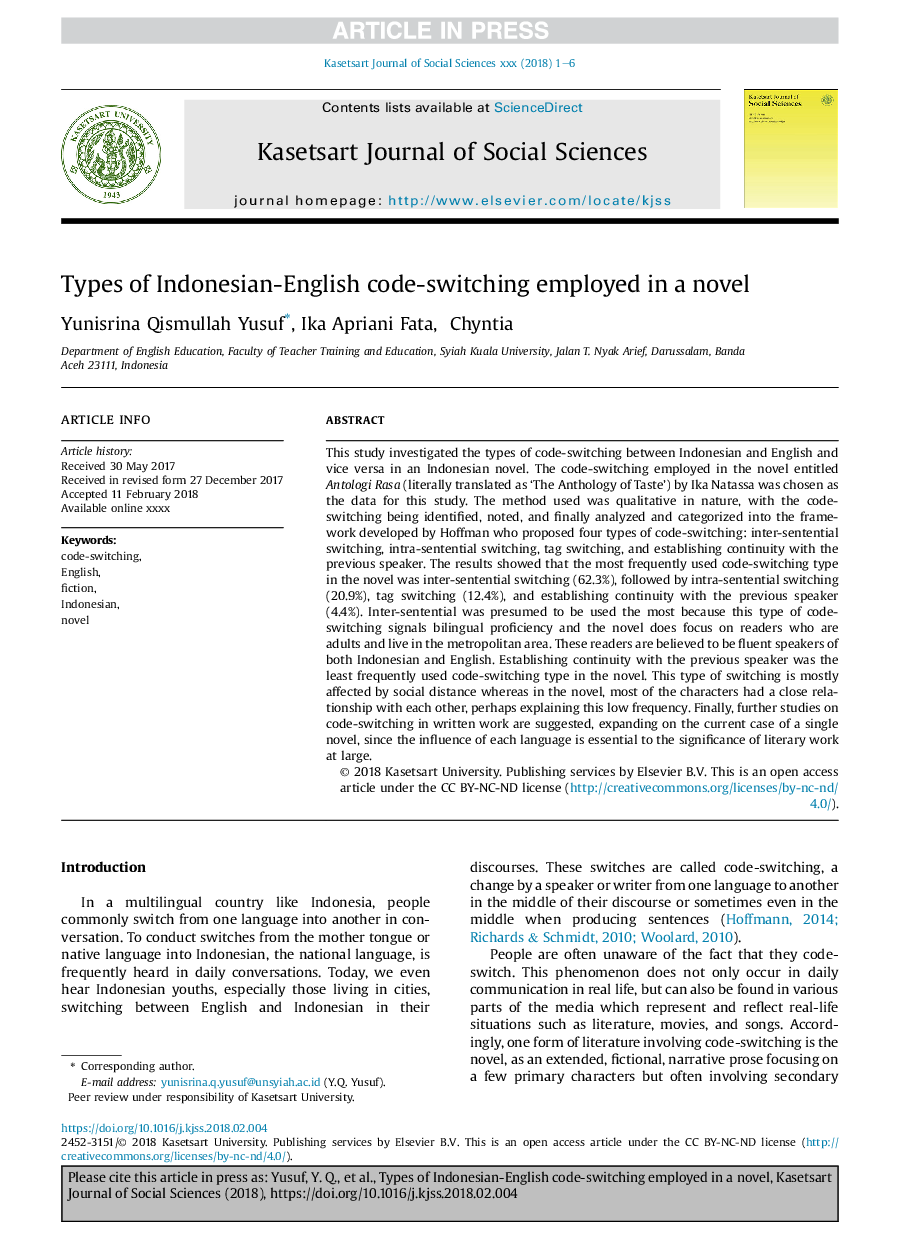ترجمه فارسی عنوان مقاله
انواع کدهای تعویض اندونزیایی-انگلیسی که در رمان کار می کنند
عنوان انگلیسی
Types of Indonesian-English code-switching employed in a novel
| کد مقاله | سال انتشار | تعداد صفحات مقاله انگلیسی |
|---|---|---|
| 126066 | 2018 | 6 صفحه PDF |
منبع

Publisher : Elsevier - Science Direct (الزویر - ساینس دایرکت)
Journal : Kasetsart Journal of Social Sciences, Available online 24 February 2018
ترجمه کلمات کلیدی
تغییر کد انگلیسی، داستان، اندونزیایی، رمان،
کلمات کلیدی انگلیسی
code-switching; English; fiction; Indonesian; novel;

